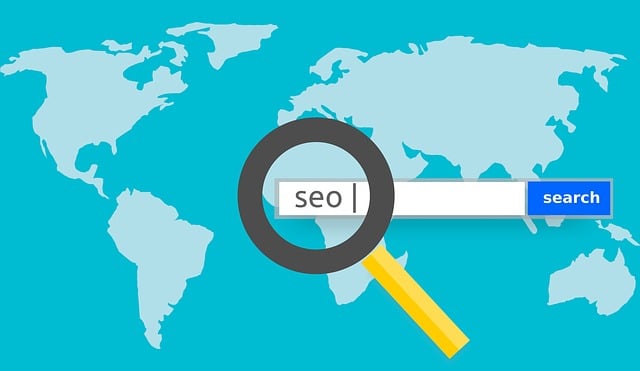Local SEO is a powerful tool for startups seeking to thrive in their geographic market, attracting foot traffic through optimized online presence for local searches. Key strategies include claiming business listings (like Google Business Profile), managing reviews, using location-based keywords, and understanding target audiences within specific neighborhoods. Website optimization with relevant keywords and metadata boosts visibility, while consistent NAP citations across platforms enhance credibility. Measuring CTR, website traffic, and GBP performance allows data-driven decisions for improved local search rankings and overall online presence.
In today’s digital landscape, local SEO is crucial for startups aiming to thrive. Understanding and implementing effective Local SEO strategies can significantly boost visibility and attract nearby customers. This article guides you through essential steps, from identifying your target audience and optimizing your website to leveraging online reviews and building a robust citation profile. By following these practices tailored for small businesses, you’ll enhance your local search rankings, ensuring your startup stands out in the competitive market.
Understanding Local SEO: Why It Matters for Startups

In the competitive landscape of today’s digital world, local search engine optimization (Local SEO) is a game-changer for startups. It involves optimizing your online presence to enhance visibility and rankings in geographic searches, ensuring that potential customers can easily find your business when looking for services or products locally. Given the high proportion of consumers conducting local searches on their smartphones and computers, implementing effective Local SEO strategies can significantly drive foot traffic and sales for small businesses.
For startups, focusing on Local SEO is crucial as it helps establish a solid foundation in their immediate community. By claiming and optimizing local business listings, managing online reviews, and leveraging location-based keywords, startups can compete with established businesses and gain a loyal customer base. This strategy ensures that when customers search for solutions within their area, the startup appears prominently, increasing its chances of attracting and retaining local clients.
Identifying Your Target Audience and Location

Understanding your target audience is a cornerstone of successful local SEO for startups. It involves delving into demographics, interests, and behaviors specific to your potential customers within your immediate geographic area. By identifying where your ideal clients live, work, and play, you can tailor your marketing efforts to resonate with them effectively. This personalized approach enhances the chances of converting local searches into sales or leads.
When optimizing for local SEO in small businesses, pinpointing the right location is crucial. It means researching and targeting specific neighborhoods, cities, or regions where your target audience is most active and likely to engage with your offerings. Leveraging tools like Google My Business, local business directories, and social media platforms can help you gather valuable insights into these areas. This strategic focus ensures that your startup’s online presence aligns perfectly with the needs and preferences of its local customer base.
Optimizing Your Website for Local Searches

Optimizing your website for local searches is a crucial aspect of successful Local SEO for Small Businesses. This involves ensuring your site is structured and coded with relevant keywords that reflect your physical location and target audience. For instance, incorporating city names, region-specific services, and location-based content can significantly boost visibility in local search results. Additionally, claiming and verifying your Google Business Profile (formerly Google My Business) listing is essential. This allows you to control how your business appears in local searches, including on Google Maps, and provides an opportunity to showcase your offerings, contact details, and customer reviews directly to potential patrons in your area.
To enhance further, make certain that your website’s metadata, headings, and content are optimized with location-focused keywords naturally integrated throughout. This helps search engines understand the geographic context of your business and display your site more prominently when users conduct local searches on their devices. By implementing these strategies, startups can establish a solid Local SEO foundation, attracting more relevant traffic and increasing the chances of conversion from potential customers in their vicinity.
Claiming and Verifying Your Google Business Profile

Claiming your Google Business Profile (GBP) is a crucial step in enhancing your startup’s visibility on local search results. It allows you to take control of your online presence and provides valuable opportunities for engagement with potential customers. Through GBP, you can accurately represent your business information, including your address, contact details, and operating hours, ensuring that those searching for services or products like yours find the correct location. This process is straightforward; simply visit the Google Business Profile website, search for your business, and follow the instructions to claim it.
Verifying your GBP is equally important to establish trust and legitimacy in the eyes of both Google and your audience. Google offers various methods to verify your business, such as receiving a verification code via text or email, or by utilizing a phone call. Once verified, you gain access to powerful tools like posting updates, responding to reviews, and analyzing customer insights, all of which contribute to an effective Local SEO strategy for small businesses.
Leveraging Online Reviews and Ratings

Online reviews and ratings are a powerful tool in the arsenal of any local startup looking to boost its Local SEO strategy. Encourage satisfied customers to leave positive feedback on platforms like Google, Yelp, or Facebook can significantly enhance your online presence. These platforms act as digital directories, and search engines heavily rely on user-generated content to provide relevant local results. By consistently receiving high ratings and constructive reviews, startups can improve their search rankings for location-based queries.
Moreover, engaging with both positive and negative reviews shows potential customers that you value their input. Responding promptly and professionally demonstrates your commitment to customer satisfaction and can turn a dissatisfied client into a loyal advocate. This interaction increases the likelihood of users clicking through to your website or physical location, thereby driving more traffic and potentially increasing conversions for any local business.
Building a Solid Local Citation Profile

Building a robust local citation profile is a cornerstone of successful Local SEO for small businesses. Citations, or mentions of your business name, address, and phone number (NAP) across various online platforms, act as votes of confidence in your startup’s credibility. Each positive citation signals to search engines that your business is legitimate and worth considering when someone searches for local services or products. This can significantly boost your visibility in local search results, driving more targeted traffic and potential customers your way.
To establish a solid foundation, ensure that your NAP information is consistent across every platform, from Google My Business and Yelp to industry-specific directories. Claiming and optimizing these listings not only enhances your online presence but also provides an opportunity to showcase your business’s unique value proposition. Regularly updating and monitoring these citations are equally important as new reviews and mentions can elevate your local SEO performance while outdated or incorrect information can harm your rankings.
Measuring and Analyzing Your Local SEO Success

Measuring your Local SEO success is a crucial step in understanding what’s working and where improvements are needed. Track key metrics like click-through rates (CTR) from local search results, as an increase indicates higher visibility and relevance to your target audience. Monitor website traffic from local organic searches; a rise in visitors suggests effective optimization. Utilize Google Analytics to analyze user behavior on your site, focusing on session duration, bounce rate, and conversion rates. These insights help identify the most engaging content and optimize further.
Regularly review your Google Business Profile (GBP) performance. Keep an eye on customer reviews, both quantity and quality, as they significantly impact local search rankings. Analyze the data to understand what aspects of your business customers appreciate most and address any negative feedback promptly. By combining these measurement strategies, you can gain a comprehensive view of your Local SEO for Small Businesses effectiveness, enabling data-driven decisions to enhance ongoing optimization efforts.
